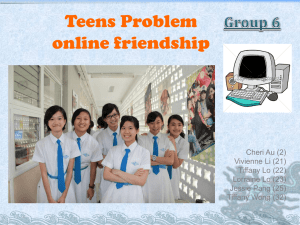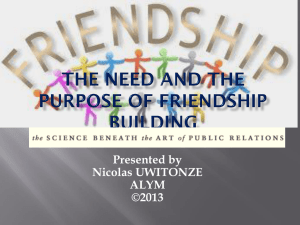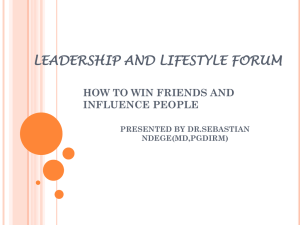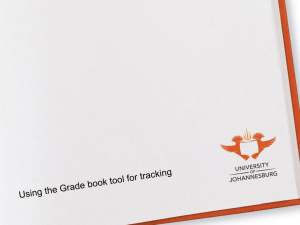Mod 2.2 - Developing Friendship Skills
advertisement
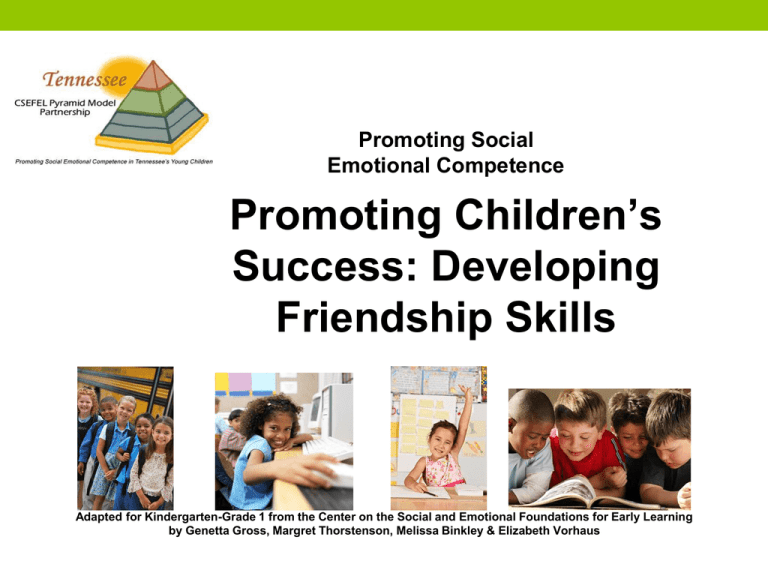
Promoting Social Emotional Competence Promoting Children’s Success: Developing Friendship Skills Adapted for Kindergarten-Grade 1 from the Center on the Social and Emotional Foundations for Early Learning by Genetta Gross, Margret Thorstenson, Melissa Binkley & Elizabeth Vorhaus 2 3 Remember… Social Skills are Important! The single best childhood predictor of adult adaptation is not school grades, and not classroom behavior, but rather, the adequacy with which the child gets along with other children. -Willard Hartup, President of International Society for the Study of Behavioral Development 4 Review…When Do We Teach Social Skills? 5 Discussion: Friendship Skills Think about children who are well liked and friendly… What do you notice about their behavior that makes it easier for them to make friends? 6 Friendship Skills • Gives suggestions (play organizers) • Shares toys and other materials • Is helpful/ a team player • Takes turns (reciprocity) • Gives compliments • Begins to accept similarities and differences in others • Understands how and when to give an apology • Begins to empathize 7 Setting the Stage for Friendship Skills • Establish an atmosphere of friendship • Include all children • Set goals for children • Use cooperative toys • Build in opportunities • Develop a plan for transitions, changes to the schedule, and environment (Be proactive) 8 Atmosphere of Friendship • You should see: • You should hear: • Adults giving time and • Adults comment positively • • • • • attention to children Children playing together much of the time Smiling faces Laughing Sharing; taking turns Helpful actions on children’s friendly behaviors • Adults speaking kindly to one another • Children complimenting each other 9 Set Goals for Children • Observe individual children and note friendship skills. • Set meaningful goals for each child. • Provide children with time and opportunity to learn and practice skills. Inclusive Setting • Children of different ethnic and cultural backgrounds, gender and disability are meaningfully included • Learning activities and routines support needs of all children 11 Activities to Support Friendship Skills Use Cooperative Toys Toys that naturally lend themselves to two or more children playing together Examples: • Balls • Board games • Puppets • Wagons • Board Games Clothes • Dramatic Play Materials • Puzzles • Role Plays 13 Friendship Can 14 Planting Seeds of Friendship 15 Friendship/Compliment Tree 16 Friendship Quilt 17 Friendship Journals 18 Activity: Action Planning • Select 2 friendship activities you will introduce to your classroom • In large group, how will you introduce the friendship skill related to that activity • Play Organizers • Giving Complements • Share • How & When to • Taking Turns Apologize • Empathy • Being Helpful 19 Questions?
